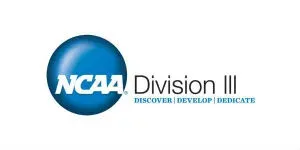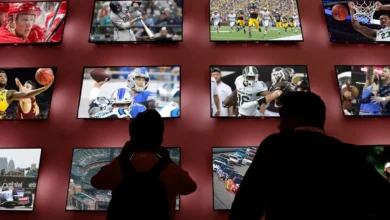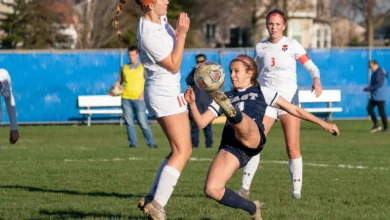NCAA Division III Betting Deregulation Proposal Explained

The recent discussions surrounding NCAA Division III betting deregulation highlight a pivotal shift in how college athletics engages with sports wagering. During their latest virtual meetings, the NCAA’s Division III Management Council expressed strong support for new legislation allowing for the deregulation of betting on professional sports. This move aims not only to create a safer environment for student-athletes but also to address the troubling issue of problem gambling among them. By implementing concepts like the safe harbor initiative, the council hopes to incentivize students to seek help without fear of punitive measures. Furthermore, these changes tie into broader efforts to reshape the landscape of NCAA Division III sports betting, potentially fostering partnerships with professional organizations to enrich the collegiate experience for athletes and fans alike.
As the NCAA takes bold steps toward deregulating sports wagering in Division III, it reflects an evolving landscape where student-athlete welfare is a top priority. This legislative shift could pave the way for a more comprehensive approach to sports investment and partnerships within college athletics. The Division III Management Council’s commitment to combatting the challenges posed by student-athletes’ problem gambling underscores their awareness of these pressing concerns. Additionally, by exploring measures such as the Coaches Connect Program, the council aims to enhance unity and education amongst coaches, ensuring they are well-equipped to address these issues. Ultimately, the movement towards deregulation underscores a commitment to balancing the excitement of sports betting with the integrity of NCAA sports.
Understanding NCAA Division III Betting Deregulation
The recent actions taken by the NCAA’s Division III Management Council reflect a significant shift in the landscape of sports betting, particularly concerning NCAA Division III sports. The push for deregulation aims to provide greater opportunities for schools and student-athletes to engage with professional sports legally, enhancing the overall experience for stakeholders while promoting responsible gaming practices. This deregulation is not only about financial gains but also focuses on the welfare of student-athletes, ensuring they are educated about the risks associated with gambling.
The council’s decision to support legislation for betting deregulation indicates a proactive approach toward modernizing sports governance. By creating this framework, the Division III Management Council hopes to foster an environment where student-athletes feel safe to seek help for gambling-related issues without fear of severe penalties. As these regulations evolve, it raises awareness about responsible gaming and the importance of mental health, recognizing the unique pressures faced by student-athletes in a competitive landscape.
Addressing Student-Athletes Problem Gambling
Recognizing the potential for problem gambling among student-athletes, the NCAA has initiated measures that prioritize mental health and wellness. The proposed safe harbor concept, which would give limited immunity to student-athletes who disclose their gambling struggles and seek help, represents a significant commitment to harm reduction. This model would encourage more student-athletes to seek assistance, thus fostering a culture of support instead of stigma surrounding problem gambling.
The NCAA’s focus on creating a safety net for student-athletes aligns closely with broader public health initiatives aimed at reducing the prevalence of gambling addiction. By integrating education about gambling risks into athletic programs and support systems, the NCAA hopes to minimize the negative impacts of sports betting on student athletes, helping them navigate the complexities of both their athletic and academic pursuits.
The Role of Coaches Connect Program in Promoting Responsible Sports Betting
The Coaches Connect Program is designed to empower coaches within the NCAA Division III framework, equipping them with the knowledge and tools necessary to educate their athletes about various aspects of sports, including responsible betting practices. By engaging in regular discussions and workshops, coaches can address issues related to gambling and other significant challenges faced by student-athletes, helping to cultivate a supportive environment.
As the Coaches Connect Program develops, it will play a crucial role in connecting athletic programs with resources that promote gambling education. This collaboration aims to establish best practices for addressing sports betting issues within teams, ensuring that coaches are not only informed about the rules but also aware of the implications of gambling on their athletes’ lives. Effective communication and engagement foster a community where student-athletes can thrive without falling victim to gambling-related problems.
Navigating Changes in Sports Betting Legislation
The landscape of sports betting legislation is evolving rapidly, driven by technological advancements and changing societal views on gambling. The NCAA Division III Management Council’s proactive stance on betting deregulation reflects these shifts, aiming to create a framework that is both responsive and responsible. By engaging with state and federal policymakers, the council seeks to ensure that new legislation aligns with the interests of student-athletes, institutions, and the broader sports community.
As sports betting legislation continues to transform, it is essential for NCAA Division III institutions to stay informed and adaptable. Understanding the nuances of new regulations not only helps schools navigate compliance but also empowers them to leverage potential opportunities that arise from the legalized betting landscape. With ongoing dialogue between stakeholders, the NCAA can foster an environment that prioritizes both innovation and the well-being of student-athletes.
Enhancing Athlete Support through the Eligibility Pilot Waiver Program
The proposed Eligibility Pilot Waiver Program represents an innovative approach to supporting NCAA Division III student-athletes. By allowing students to engage in intercollegiate competition while pursuing their education at institutions without varsity sports, the program creates new opportunities for athletic participation. This initiative not only encourages academic advancement but also acknowledges the diverse paths students take in their college careers.
If implemented, the pilot program could significantly impact student-athletes’ experience in Division III sports. By facilitating collaborations between institutions and expanding eligibility criteria, the NCAA aims to promote inclusivity and a holistic approach to student-athlete development. This aligns with the council’s overall commitment to prioritizing the academic and athletic success of all student-athletes while maintaining the integrity of college athletics.
Impact of the Management Council’s Initiatives
The actions taken by the NCAA Division III Management Council hold immense significance for the future of college athletics, particularly in promoting a culture of education and responsible behavior around sports betting. The council’s initiatives, including the Coaches Connect Program and potential safe harbor provisions, underscore a commitment to not only enhancing athletic performance but also safeguarding the health and well-being of student-athletes.
By actively addressing concerns such as problem gambling and creating supportive environments, the Management Council lays the groundwork for a more sustainable and responsible sports culture. Such initiatives may help mitigate risks associated with gambling while fostering engagement and open conversations among athletes, coaches, and staff.
Future Directions for NCAA Division III Sports Betting
As the NCAA explores the future of sports betting within Division III, it faces the challenge of balancing integrity with opportunity. Continued discussions about deregulation may open new avenues for partnerships with professional organizations, creating a win-win scenario for schools and sports entities. However, it will be vital to approach these changes with a strategic mindset, ensuring that student-athlete welfare remains at the forefront of any legislative adjustments.
Looking ahead, a well-structured strategy that includes input from all stakeholders—administrators, coaches, and student-athletes alike—can facilitate a more harmonious integration of sports betting into NCAA Division III. This collaborative effort will ultimately shape the direction of college athletics, emphasizing education and safety while embracing the potential benefits of deregulated betting.
Understanding the Importance of Responsible Gambling Education
The importance of responsible gambling education cannot be overstated in the context of NCAA Division III athletics. As sports betting becomes increasingly accessible, educating student-athletes about the risks and responsible practices is crucial. Programs developed under the NCAA’s initiatives aim to equip athletes with the necessary knowledge to navigate their gambling choices safely, thus reducing the incidence of problem gambling.
This commitment to education empowers student-athletes to make informed decisions regarding sports betting. By integrating responsible gambling content into training and workshops, the NCAA can foster an informed cohort of athletes who can critically assess their gambling behavior and its potential consequences, leading to healthier and more sustainable participation in sports.
Collaboration with Professional Sports Organizations and Partnerships
The recent decisions by the NCAA Division III Management Council regarding partnerships with professional sports organizations signal a new era for college athletics. By allowing schools to pursue sponsorships, this initiative opens doors for innovative funding and resource-sharing opportunities. Such collaborations could lead to increased support for student-athlete programs, including mental health resources and education on responsible sports betting.
Engaging with professional sports entities also presents an opportunity to raise awareness around problem gambling and responsible betting practices. These partnerships can leverage the influence and reach of professional leagues to disseminate vital information, ensuring that students are informed about the potential risks associated with gambling in a sports context. As these relationships develop, they can create a supportive environment that benefits both student-athletes and their institutions.
Frequently Asked Questions
What is NCAA Division III betting deregulation and how does it impact student-athletes?
NCAA Division III betting deregulation refers to the recent actions taken by the Division III Management Council to support legislation that allows for the easing of restrictions on sports betting on professional events. This change is aimed at promoting a safer environment for student-athletes, encouraging them to seek help for problem gambling without fear of harsh penalties. The council believes that deregulating sports betting will lead to increased awareness and education around problem gambling among student-athletes.
How will the Coaches Connect Program relate to NCAA Division III sports betting regulations?
The Coaches Connect Program, initiated by the NCAA Division III Management Council, aims to improve communication and governance among coaches. As part of its educational mission, the program will address topics such as NCAA Division III sports betting regulations, ensuring coaches understand the implications of betting deregulation, and how to support student-athletes in navigating these changes responsibly.
What measures are being proposed to support student-athletes struggling with problem gambling due to NCAA Division III sports betting?
In response to concerns over problem gambling among student-athletes, the NCAA’s Division III Management Council plans to develop a safe harbor concept that would offer limited immunity or reduced penalties for those who come forward seeking help. This initiative is part of the broader strategy surrounding NCAA Division III sports betting deregulation, focusing on harm reduction and accessible support for affected student-athletes.
What are the potential benefits of NCAA Division III betting deregulation for sports programs?
NCAA Division III betting deregulation could benefit sports programs by allowing for new partnership opportunities with professional sports organizations. The council’s proposal to lift restrictions on financial donations and sponsorships could lead to enhanced funding and resources for athletic programs, ultimately strengthening the competitive landscape for Division III sports.
How will the eligibility pilot waiver program coexist with NCAA Division III betting deregulation?
The eligibility pilot waiver program, which allows Division III student-athletes to represent their schools while enrolled at institutions with no varsity athletics, operates independently of NCAA Division III betting deregulation. However, both initiatives share a common goal of improving student-athlete welfare and education, making it essential for institutions to address both issues simultaneously to ensure comprehensive support for their student-athletes.
Who directs the actions taken regarding NCAA Division III sports betting?
The actions regarding NCAA Division III sports betting are directed by the Division III Management Council, which is responsible for implementing policies set forth by the NCAA Board of Governors and the Division III Presidents Council. This includes sponsoring legislative proposals related to NCAA Division III sports betting deregulation and ensuring adherence to updated bylaws.
| Key Point | Details |
|---|---|
| Support for Deregulating Betting | The NCAA Division III Management Council is promoting legislation to deregulate betting on professional sports. |
| Safe Harbor Policy for Athletes | Proposed measures to support student-athletes engaging in prohibited betting if they seek help for problem gambling. |
| Financial Partnerships with Professional Sports | Approval to deregulate outside organization donations and allow partnerships with professional sports firms. |
| Eligibility Pilot Waiver Program | A proposed program allowing student-athletes to represent their school while enrolled in institutions without varsity athletics. |
| Coaches Connect Program | A new program to enhance communication and education for Division III coaches, starting with three sports in the 2025-26 season. |
Summary
NCAA Division III betting deregulation is a significant development aimed at creating a safer environment for student-athletes concerning gambling practices. The recent decisions made by the Division III Management Council indicate a strong commitment to not only support legislative changes for the deregulation of betting on professional sports but also to implement safeguards like a safe harbor policy for those seeking help for problem gambling. These initiatives, combined with new pilot programs for eligibility and improved communication strategies for coaches, reflect a proactive approach to not only enhance intercollegiate sports but also to address the complexities surrounding gambling and student-athlete welfare.




